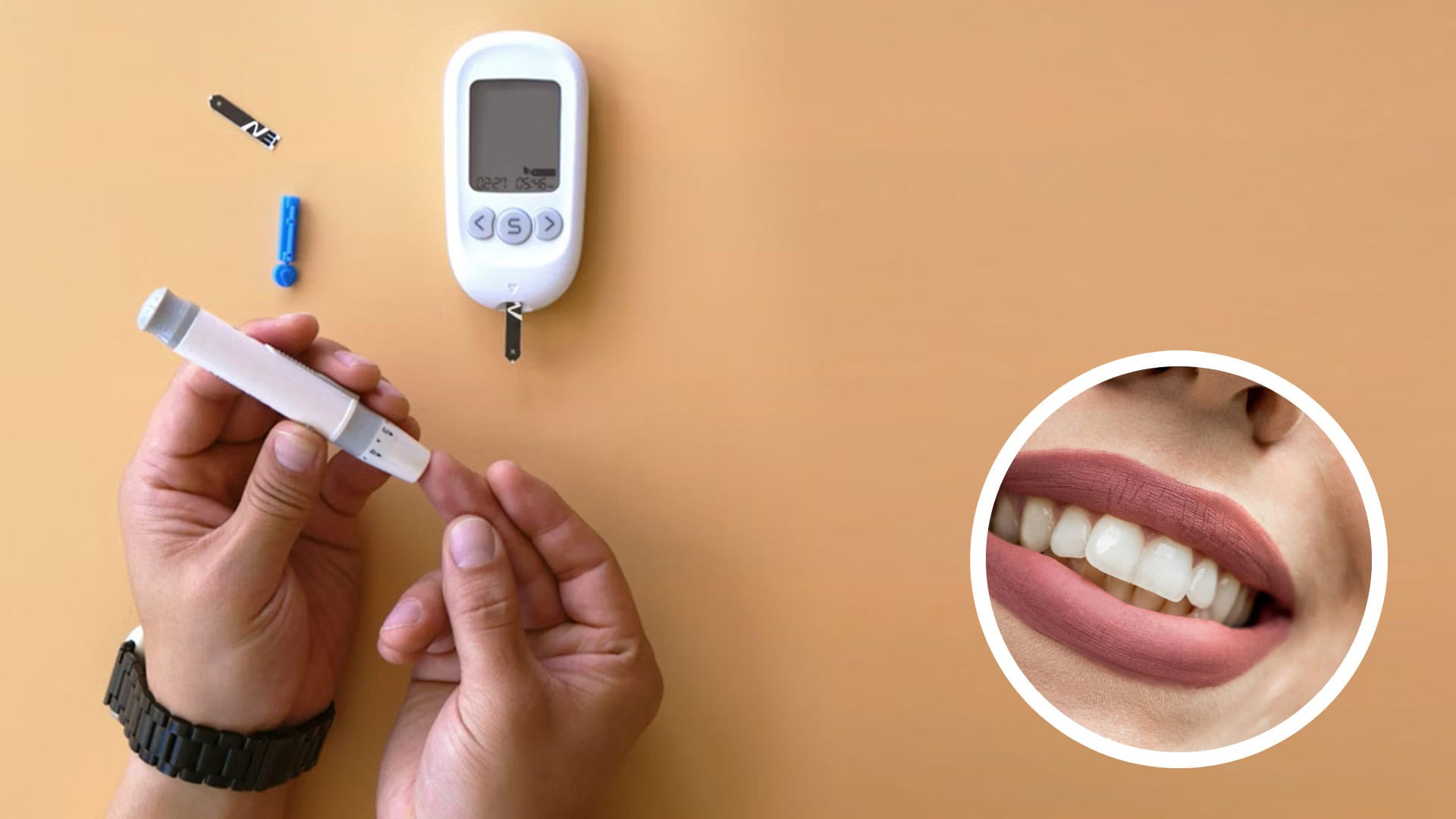Diabetes & Dental Health: Why Your Dentist Should Know You’re Diabetic
At Optident Dental Clinic in Colchester, we believe great oral health is about more than just teeth — it’s about your whole body. In light of National Diabetes Week (June 10 – June 16), we’re shining a light on the powerful link between diabetes and dental health.
How Does Diabetes Affect Your Mouth?
Diabetes doesn’t just affect your blood sugar. It also impacts your gums, teeth, and saliva, increasing your risk of:
- Gum disease (periodontitis) – Diabetes can reduce blood flow to your gums and affect your body’s ability to fight infection. This makes gum inflammation more likely – and harder to control.
- Dry mouth – Less saliva means less natural protection against decay and infection.
- Slow healing – This can affect how your mouth recovers after dental treatments or infections.
- Fungal infections like oral thrush – More common in people with poorly managed blood sugar levels.
What Dental Symptoms Should You Look Out For if You Have Diabetes?
If you have diabetes, look out for:
- Bleeding gums when brushing
- Bad breath that won’t go away
- Loose teeth or receding gums
- Dry or burning sensations in your mouth
These could be early signs of gum disease.
Why is Gum Disease Dangerous?
Gum disease (periodontitis) isn’t just a nuisance. It can have serious consequences both in your mouth and throughout your body:
- Bone & tooth loss – As gum disease progresses, the bacteria and inflammation eat away at the supporting bone around your teeth. Without healthy bones and gums, teeth can loosen and eventually fall out.
- Chronic inflammation – Persistent gum inflammation floods your bloodstream with pro-inflammatory chemicals. This systemic inflammation has been linked to an increased risk of heart disease, stroke, and even certain cancers.
- Worsened diabetes control – Inflammation from gum disease makes it harder for your body to use insulin effectively. Poorly controlled blood sugar, in turn, worsens gum disease, creating a vicious cycle that can be tough to break.
- Increased risk of infection – The mouth is a gateway to the rest of the body. When gums bleed or pockets form around teeth, bacteria have an easy path into your bloodstream, raising the risk of infections elsewhere, particularly dangerous for people with diabetes or weakened immune systems.
- Impact on overall health & quality of life – Beyond physical health, gum disease can cause chronic pain, bad breath, difficulty eating, and low self-esteem. Addressing gum disease early helps you maintain both your health and confidence.
By understanding these risks, you can see why preventing and treating gum disease is crucial, especially if you’re managing diabetes. Regular dental check-ups, good home care, and early intervention are your best defenses against these dangers.
The Two-Way Relationship
Here’s something many people don’t realise: gum disease can also make blood sugar harder to control. That’s why managing your oral health is an essential part of managing diabetes.
Good dental care can actually help improve your overall diabetes control — and vice versa.
How We Support Diabetic Patients at Optident
We take a whole-health approach to dentistry. If you’re diabetic, let us know — we’ll tailor your care to:
- Monitor for early signs of gum disease
- Recommend more frequent hygiene visits if needed
- Work alongside your GP or diabetic nurse if any oral issues arise
Book Your Check-Up Today
If you or a loved one are living with diabetes, regular dental visits are more important than ever.
Your mouth matters. Let’s keep it healthy, together.
Call us on 01206 544156 or fill in the form below to book your next oral health check at Optident Dental Clinic, Colchester.
Ready to take control of your oral health?







